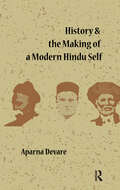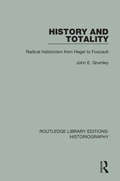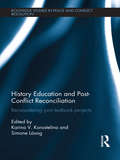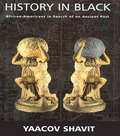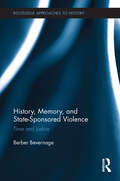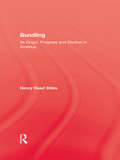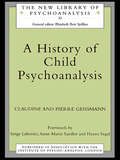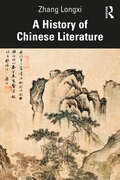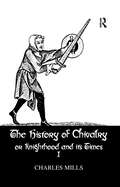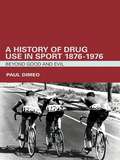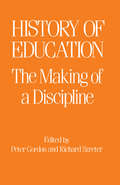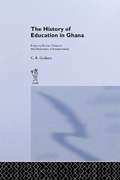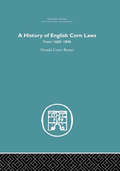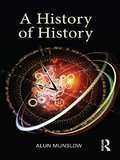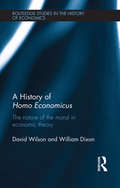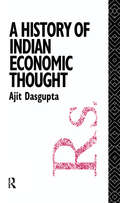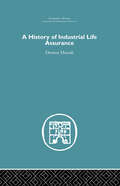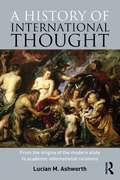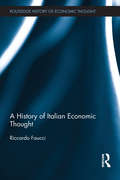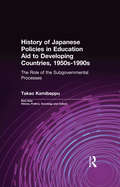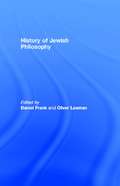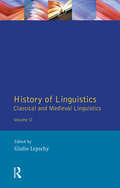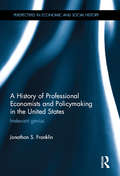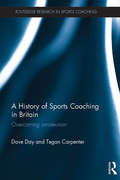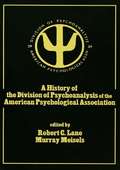Special Collections
Benetech’s Global Certified Accessible Titles
Description: Benetech’s GCA program is the first independent third-party EPUB certification to verify ebook accessibility. By creating content that is born accessible, publishers can meet the needs of all readers. Learn more: https://bornaccessible.benetech.org/
- Table View
- List View
History and the Making of a Modern Hindu Self
by Aparna DevareTaking the contentious debates surrounding historical evidence and history writing between secularists and Hindu nationalists as a starting point, this book seeks to understand the origins of a growing historical consciousness in contemporary India, especially amongst Hindus. The broad question it poses is: Why has ‘history’ become such an important site of identity, conflict and self-definition amongst modern Hindus, especially when Hinduism is known to have been notoriously impervious to history? As modern ideas regarding notions of history came to India with colonialism, it turns to the colonial period as the ‘moment of encounter’ with such ideas. The book examines three distinct moments in the Hindu self through the lives and writings of lower-caste public figure Jotiba Phule, ‘moderate’ nationalist M. G. Ranade and Hindu nationalist V. D. Savarkar. Through a close reading of original writings, speeches and biographical material, it is demonstrated that these three individuals were engaged with a modern historical and rationalist approach. However, the same material is also used to argue that Phule and Ranade viewed religion as living, contemporaneous and capable of informing both their personal and political lives. Savarkar, the ‘explicitly Hindu’ leader, on the contrary, held Hindu practices and traditions in contempt, confining them to historical analysis while denying any role for religion as spirituality or morality in contemporary political life. While providing some historical context, this volume highlights the philosophical/ political ideas and actions of the three individuals discussed. It integrates aspects of their lives as central to understanding their politics.
History and Totality
by John GrumleyIn this work, originally published in 1989, the author establishes a tradition of radical historicism from Hegel to the Budapenst School. He charts both its continuous evolution from the early 19th century to the late 20thh, and its transformation in the context of European social, economic and cultural change. Through a reappraisal of historical interpretation from Hegel to Foucault, the book demonstrates the contemporary relevance of radical historicism. It includes detailed analyses of Marx, Dilthey, Simmel, Weber, Lukácks, Horkheimer, Adorno and Habermas.
History Education and Post-Conflict Reconciliation
by Karina V. Korostelina and Simone LässigThis book analyses the role of history education in conflict and post-conflict societies, describing common history textbook projects in Europe, the Balkans, the Caucasus, the Far East and the Middle East. Ever since the emergence of the modern school system and the implementation of compulsory education, textbooks have been seen as privileged media. The knowledge they convey is relatively persistent and moreover highly selective: every textbook author must choose and omit, condense, structure, reduce, and generalize information. Within this context, history textbooks are often at the centre of interest. There are unquestionably significant differences regarding homogeneity or plurality of interpretations when concepts of history education are compared internationally. This volume conducts a comparative analysis of common history projects in different countries and provides conceptual frameworks and methodological tools for enhancing the roles of these projects in the processes of conflict prevention and resolution. This book is timely, as issues of history education in conflict and post-conflict societies are becoming more popular with the increased realisation that unresolved disagreements about historical narratives can, and often do, lead to renewed conflict or even violence. This book will be of interest to students of peace studies and conflict resolution, political science, history, sociology, anthropology, social psychology, and international relations in general.
History in Black
by Yaacov ShavitThe development of Afrocentric historical writing is explored in this study which traces this recording of history from the Hellenistic-Roman period to the 19th century. Afrocentric writers are depicted as searching for the unique primary source of "culture" from one period to the next. Such passing on of cultural traits from the "ancient model" from the classical period to the origin of culture in Egypt and Africa is shown as being a product purely of creative history.
History, Memory, and State-Sponsored Violence
by Berber BevernageModern historiography embraces the notion that time is irreversible, implying that the past should be imagined as something ‘absent’ or ‘distant.’ Victims of historical injustice, however, in contrast, often claim that the past got ‘stuck’ in the present and that it retains a haunting presence. History, Memory, and State-Sponsored Violence is centered around the provocative thesis that the way one deals with historical injustice and the ethics of history is strongly dependent on the way one conceives of historical time; that the concept of time traditionally used by historians is structurally more compatible with the perpetrators’ than the victims’ point of view. Demonstrating that the claim of victims about the continuing presence of the past should be taken seriously, instead of being treated as merely metaphorical, Berber Bevernage argues that a genuine understanding of the ‘irrevocable’ past demands a radical break with modern historical discourse and the concept of time. By embedding a profound philosophical reflection on the themes of historical time and historical discourse in a concrete series of case studies, this project transcends the traditional divide between ‘empirical’ historiography on the one hand and the so called ‘theoretical’ approaches to history on the other. It also breaks with the conventional ‘analytical’ philosophy of history that has been dominant during the last decades, raising a series of long-neglected ‘big questions’ about the historical condition – questions about historical time, the unity of history, and the ontological status of present and past –programmatically pleading for a new historical ethics.
History Of Bundling
by StilesFirst published in 2006. Routledge is an imprint of Taylor & Francis, an informa company.
A History of Child Psychoanalysis
by the late Geissmann and Claudine GeissmannChild analysis has occupied a special place in the history of psychoanalysis because of the challenges it poses to practitioners and the clashes it has provoked among its advocates. Since the early days in Vienna under Sigmund Freud child psychoanalysts have tried to comprehend and make comprehensible to others the psychosomatic troubles of childhood and to adapt clinical and therapeutic approaches to all the stages of development of the baby, the child, the adolescent and the young adult. Claudine and Pierre Geissmann trace the history and development of child analysis over the last century and assess the contributions made by pioneers of the discipline, whose efforts to expand its theoretical foundations led to conflict between schools of thought, most notably to the rift between Anna Freud and Melanie Klein. Now taught and practised widely in Europe, the USA and South America, child and adolescent psychoanalysis is unique in the insight it gives into the psychological aspects of child development, and in the therapeutic benefits it can bring both to the child and its family.
A History of Chinese Literature
by Zhang LongxiZhang Longxi, an internationally renowned scholar of Chinese and comparative literature, is your guide to the three-millennia-long history of Chinese literature from the remote antiquity of oracle bones to contemporary works. Professor Zhang charts the development of the major literary forms in Chinese, including poetry, prose, song lyrics, and plays, and introduces the most famous poets and writers and their representative texts. Taking a period-based approach through the major dynasties, he places these forms, texts, and authors within their historical contexts and tells the fascinating story of Chinese literature with copious examples in English translation. He writes in a clear and accessible style and assumes no prior knowledge of Chinese history or Chinese literature. This book is an ideal introduction for students and the general readers who want to get a broad but thorough overview of Chinese literature in all its richness and diversity.
History Of Chivalry Vol I
by MillsFirst published in 2005. Routledge is an imprint of Taylor & Francis, an informa company.
A History of Drug Use in Sport
by Paul DimeoThis book offers a new history of drug use in sport. It argues that the idea of taking drugs to enhance performance has not always been the crisis or ‘evil’ we now think it is. Instead, the late nineteenth century was a time of some experimentation and innovation largely unhindered by talk of cheating or health risks. By the interwar period, experiments had been modernised in the new laboratories of exercise physiologists. Still there was very little sense that this was contrary to the ethics or spirit of sport. Sports, drugs and science were closely linked for over half a century. The Second World War provided the impetus for both increased use of drugs and the emergence of an anti-doping response. By the end of the 1950s a new framework of ethics was being imposed on the drugs question that constructed doping in highly emotive terms as an ‘evil’. Alongside this emerged the science and procedural bureaucracy of testing. The years up to 1976 laid the foundations for four decades of anti-doping. This book offers a detailed and critical understanding of who was involved, what they were trying to achieve, why they set about this task and the context in which they worked. By doing so, it reconsiders the classic dichotomy of ‘good anti-doping’ up against ‘evil doping’. Winner of the 2007 Lord Aberdare Literary Prize for the best book in British sports history.
The History of Education
by R. Szreter and Peter GordonThis volume deals with the great changes which have taken place in the practice of the history of education in present years. It brings together a number of important articles on the subject which are not easily available to the ordinary reader.
The History of Education in Ghana
by C.K. GrahamPublished in the year 1971, The History of Education in Ghana is a valuable contribution to the field of History.
History of English Corn Laws, A
by Donald Grove BarnesFirst Published in 2005. Routledge is an imprint of Taylor & Francis, an informa company.
A History of History
by Alun MunslowIn a provocative analysis of European and American historical thinking and practice since the early 18th century, A History of History confronts several basic assumptions about the nature of history. Among these are the concept of historical realism, the belief in representationalism and the idea that the past possesses its own narrative. What is offered in this book is a far-reaching and fundamental rethinking of realist and representationalist ‘history of a particular kind’ by addressing and explaining the ideas of major philosophers of history over the past three hundred years and those of the key theorists of today. In pursuing this radical analysis, the understanding of history as a narrative is evaluated along with contemporary notions such as the continuing presence of the past and the idea of ‘its lessons’. Written by one of the leading thinkers on the subject, A History of History provides an accessible and radical history of history while offering new insights into the pressing questions of the nature, purpose and function of history. This book is an essential text for all students, teachers and consumers of history.
A History of Homo Economicus
by David Wilson and William DixonA key issue in economic discourse today is the relation (or lack of it) between economic behaviour and morality. Few (presumably) would want to deny that human beings are in some sense moral or ethical creatures, but the devil is in the detail. Should we think of economic behaviour as an essentially amoral process – a process adequately characterised by a means-ends rationality – into which any number of subjective ethical concerns or orientations may be intruded to give a particular action its determinate moral content? Or is it rather the case that our moral being runs deeper than this, in the sense that all of our behaviour – ‘economic’ or otherwise – is enabled or capacitated by a competence that is fundamentally ethical in character? With new analyses of the work of Hobbes and Smith, Dixon and Wilson offer a fresh approach to the debate surrounding economics and morality with a novel discussion of the self in economic theory. This book calls for a change in the way that the relation between economic behaviour and morality is understood – from an understanding of morality as a kind of preference that informs certain types of other-regarding behaviour (the way that modern economics understands the relationship), to an idea of morality as a competence that enables or, rather, conditions the possibility of all forms of human behaviour, other-regarding or not. Offering a new insight on homo economicus, this book will be of great interest to all those interested in the history of economics and of economic thought.
A History of Indian Economic Thought
by Ajit K. DasguptaThe history of Indian economic thought provides rich insights into both economic issues and the workings of the Indian mind. A History of Indian Economic Thought provides the first overview of economic thought in the sub-continent. Arguing that it would be inappropriate to rely on formal economic analyses it draws on a wide range of sources; epics, religious and moral texts for the early period and public speeches, addresses, and newspaper articles for controversies from the nineteenth century onwards. What emerges is a rich mosaic reflecting India's different cultures and civilizations. Hinduism, Buddhism and Islam all address economic issues and British colonial rule had a deep impact, both in propagating Western economic ideas and in provoking Indian theories of colonialism and underdevelopment. The author concludes with chapters on Ghandian economics and on Indian economic thought since Independence.
A History of Industrial Life Assurance
by D. MorrahFirst Published in 2005. Routledge is an imprint of Taylor & Francis, an informa company.
A History of International Thought
by Lucian AshworthInternational thought is the product of major political changes over the last few centuries, especially the development of the modern state and the industrialisation of the world economy. While the question of how to deal with strangers from other communities has been a constant throughout human history, it is only in recent centuries that the question of ‘foreign relations’ (and especially imperialism and war) have become a matter of urgency for all sectors of society throughout the world. This book provides the first comprehensive overview of the evolution of Western international thought, and charts how this evolved into the predominantly Anglophone field of International Relations. Along the way several myths of the origins of International Relations are explored and exposed: the myth of the peace of Westphalia, the myths of Versailles and the nature of the League of Nations, the realist-idealist ‘Great Debate’ myth, and the myth of appeasement. Major approaches to the study of international affairs are discussed within their context and on their own terms, rather than being shoe-horned into anachronistic ‘paradigms’. Written in a clear and accessible style, Ashworth’s analysis reveals how historical myths have been used as gatekeeping devices, and how a critical re-evaluation of the history of international thought can affect how we see international affairs today.
A History of Italian Economic Thought
by Riccardo FaucciThis book provides the non-Italian scholar with an extensive picture of the development of Italian economics, from the Sixteenth century to the present. The thread of the narrative is the dialectics between economic theory and political action, where the former attempts to enlighten the latter, but at the same time receives from politics the main stimulus to enlarge its field of reflection. This is particularly clear during the Enlightenment. Inside, this book insists on stressing that Galiani, Verri, and Beccaria were economists quite sensitive to practical issues, but who also were willing to attain generally valid conclusions. In this sense, "pure economics" was never performed in Italy. Even Pareto used economics (and sociology) in order to interpret and possibly steer the course of political action. Within this book it illustrates the Restoration period (1815-48). There was a slowdown of the economists' engagement, due to an adverse political situation, that prompted the economists to prefer less dangerous subjects, such as the relationship between economics, morals, and law (the main interpreter of this attitude was Romagnosi). After 1848, however, in parallel with the Risorgimento cultural climate, a new vision of the economists' task was eventually manifested. Between economics and political Liberalism a sort of alliance was established, whose prophet was F. Ferrara. While the Historical school of economics of German origin played a minor role, Pure Economics (1890-1940 approx.) had a considerable success, as regards both economic equilibrium and the theory of public finance. Consequently, the introduction of Keynes's ideas was rather troubled. Instead, Hayek had an immediate success. This book concludes with a chapter devoted to the intense relationships between economic theories, economic programmes and political action after 1945. Here, the Sraffa debate played an important role in stimulating Italian economists to a reflection on the patterns of Italian economy and the possibilities of transforming Italy's economic and social structure.
History of Japanese Policies in Education Aid to Developing Countries, 1950s-1990s
by Takao KamibeppuFirst published in 2002. Routledge is an imprint of Taylor & Francis, an informa company.
History of Jewish Philosophy
by Daniel H. Frank and Oliver LeamanJewish philosophy is often presented as an addendum to Jewish religion rather than as a rich and varied tradition in its own right, but the History of Jewish Philosophy explores the entire scope and variety of Jewish philosophy from philosophical interpretations of the Bible right up to contemporary Jewish feminist and postmodernist thought. The links between Jewish philosophy and its wider cultural context are stressed, building up a comprehensive and historically sensitive view of Jewish philosophy and its place in the development of philosophy as a whole. Includes:· Detailed discussions of the most important Jewish philosophers and philosophical movements· Descriptions of the social and cultural contexts in which Jewish philosophical thought developed throughout the centuries· Contributions by 35 leading scholars in the field, from Britain, Canada, Israel and the US· Detailed and extensive bibliographies
History of Linguistics Volume II
by Giulio C. LepschyThis comprehensive history of linguistics is part of a 5 volume set. Together, the volumes examine the social, cultural and religious functions of language, its place in education, the prestige attached to different varieties of language, and the presentation of lexical and grammatical descriptions. They explore the linguistic interests and assumptions of individual cultures in their own terms, without trying to transpose and reshape them into the context of contemporary ideas of what the scientific study of language ought to be. The authors of individual chapters are all specialists who have been able to analyse the primary sources, and so produce original syntheses which offer an authoritative view of the different traditions and periods. Volume Two examines the Greek, Roman and Medieval European traditions, which between them developed the grammatical and syntactical models which form the basis of our inherited linguistic assumptions.
A History of Professional Economists and Policymaking in the United States
by Jonathan S. FranklinOver the course of the twentieth century, professional economists have become a feature in the policymaking process and have slowly changed the way we think about work, governance, and economic justice. However, they have also been a frustrating, paradoxical, and in recent years, controversial fixture in American public life. This book focuses on the emergence and growth of professional economics in the U.S., examining the challenges early professional economists faced, which foreshadowed obstacles throughout the twentieth century. From the founding of the American Economic Association in 1885 to the depths of the Great Depression, this volume illustrates why some of the most optimistic and capable economic minds struggled to help smooth economic transitions and tame market fluctuations. Drawing on archival research and secondary sources, the text explores the emergence of professional economics in the United States and explains how economists came to be ‘irrelevant geniuses’. This book is well suited for those who study and are interested in American history, the history of economic thought and policy history.
A History of Sports Coaching in Britain
by Dave Day and Tegan CarpenterAt the London Olympics in 2012 Team GB achieved a third place finish in the medals table. A key factor in this achievement was the high standard of contemporary British sports coaching. But how has British sports coaching transitioned from the amateur to the professional, and what can the hitherto under-explored history of sports coaching in Britain tell us about both the early history of sport and about contemporary coaching practice? A History of Sports Coaching in Britain is the first book to attempt to examine the history of British sports coaching, from its amateur roots in the deep nineteenth century to the high performance, high status professional coaching cultures of today. The book draws on original primary source material, including the lost coaching lives of key individuals in British coaching, to trace the development of coaching in Britain. It assesses the continuing impact of the nineteenth-century amateur ethos throughout the twentieth century, and includes important comparisons with developments in international coaching, particularly in North America and the Eastern Bloc. The book also explores the politicisation of sport and the complicated interplay between politics and coaching practice, and illuminates the origins of the structures, organisations and philosophies that surround performance sport in Britain today. This book is fascinating reading for anybody with an interest in the history of sport, sports coaching, sports development, or the relationships between sport and wider society.
A History of the Division of Psychoanalysis of the American Psychological Associat
by Robert C. Lane and Murray MeiselsIn 1909, G. Stanley Hall, the founder of the American Psychological Association, invited Sigmund Freud, Sandor Ferenczi, Carl Jung, and Ernest Jones to Clark University to present their understanding of psychoanalysis. Although their presentations were enthusiastically received by many, the discrepancy with what was then considered the mainline American psychological thought was too great and the two fields remained separate. The formation of the Division of Psychoanalysis in 1979 -- seventy years later -- had as a major goal a rapprochement between psychoanalysis and psychology. Analytically trained psychologists and those seeking training have responded with enthusiasm to the formation of the Division, which now numbers 3,500 members in thirteen short years. This volume records the history of the Division and the seminal contributions of its founding members. It describes the dynamic tensions that have existed over the years between differing clinical and theoretical concepts of psychoanalysis leading to creative dialogue.
